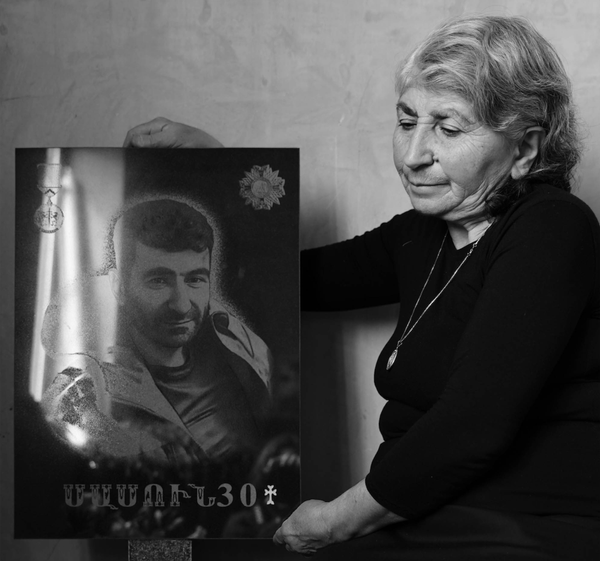Photographs by Ani Balayan
Last September, the armed forces of Azerbaijan overran Nagorno-Karabakh, an Armenian enclave lodged inside the country’s internationally recognized borders. The conquest brought to a close the longest-running frozen conflict to arise from the breakup of the Soviet Union. It also resulted in the removal of more than 100,000 Armenians who resided in the region, known among them as Artsakh, now virtually emptied of its indigenous population.
The Azerbaijani regime—flush with petrodollars and with some of the West’s most powerful lobbying firms on retainer—sought to portray the exodus as voluntary. The Armenians, it said, were free to remain in the territory as “ordinary citizens of Azerbaijan.” Yet the military sweep had been preceded by a months-long blockade that left food, medicine, and fuel in short supply, plunging the community, including some 30,000 children, into hunger and malnutrition.
Then, too, the regime had injected its own population with toxic anti-Armenian propaganda in the decades before the takeover. This included the bizarre claim that Armenians are ethnic “interlopers” who had usurped the region from its real indigenous population, the long-since-disappeared Roman Albanians (not to be confused with Balkan Albanians). The campaign also included the destruction of ancient cross stones, church inscriptions, and other markers of Armenian civilization, which Baku characterized as “forgeries.”
Add the steady stream of images from earlier rounds of the conflict showing captive Armenian soldiers in distress or having their dead bodies desecrated, and the Karabakhi Armenians had good reason to fear that they faced a massacre once Azerbaijan overwhelmed their position: a replay of the first modern genocide that killed a million of their kin in the Ottoman Empire and dispersed hundreds of thousands more during World War I. Flight was the only option.
What follows is an account of the final days of a vanished society, as told by six women who survived its disappearance. Based on extensive interviews with the women conducted across Armenia proper, this narrative amounts to the first public oral history of one of the clearest cases of 21st-century ethnic cleansing, carried out in broad daylight and with minimal protest from Western capitals. Their stories present a harrowing study of what it’s like to lose a home and a community in a flash of days. They also attest to the resilience of the Armenian people—and to the indomitable spirit of women in wartime.
Tuesday, Sept. 19, 2023. “I have bright, fond memories of that day and horrible ones, too,” said Naira Danielyan, 34, a stout, bubbly teacher who lived in Martuni, a town in the eastern part of the territory, close to the border with Azerbaijan. The previous day, a friend had sought her help finding condensed sweet milk, a Soviet-era favorite that outlasted the Communist empire, to use in a birthday cake for her daughter. Naira relayed this on her Facebook wall, hoping someone in her circle might have a can to spare.
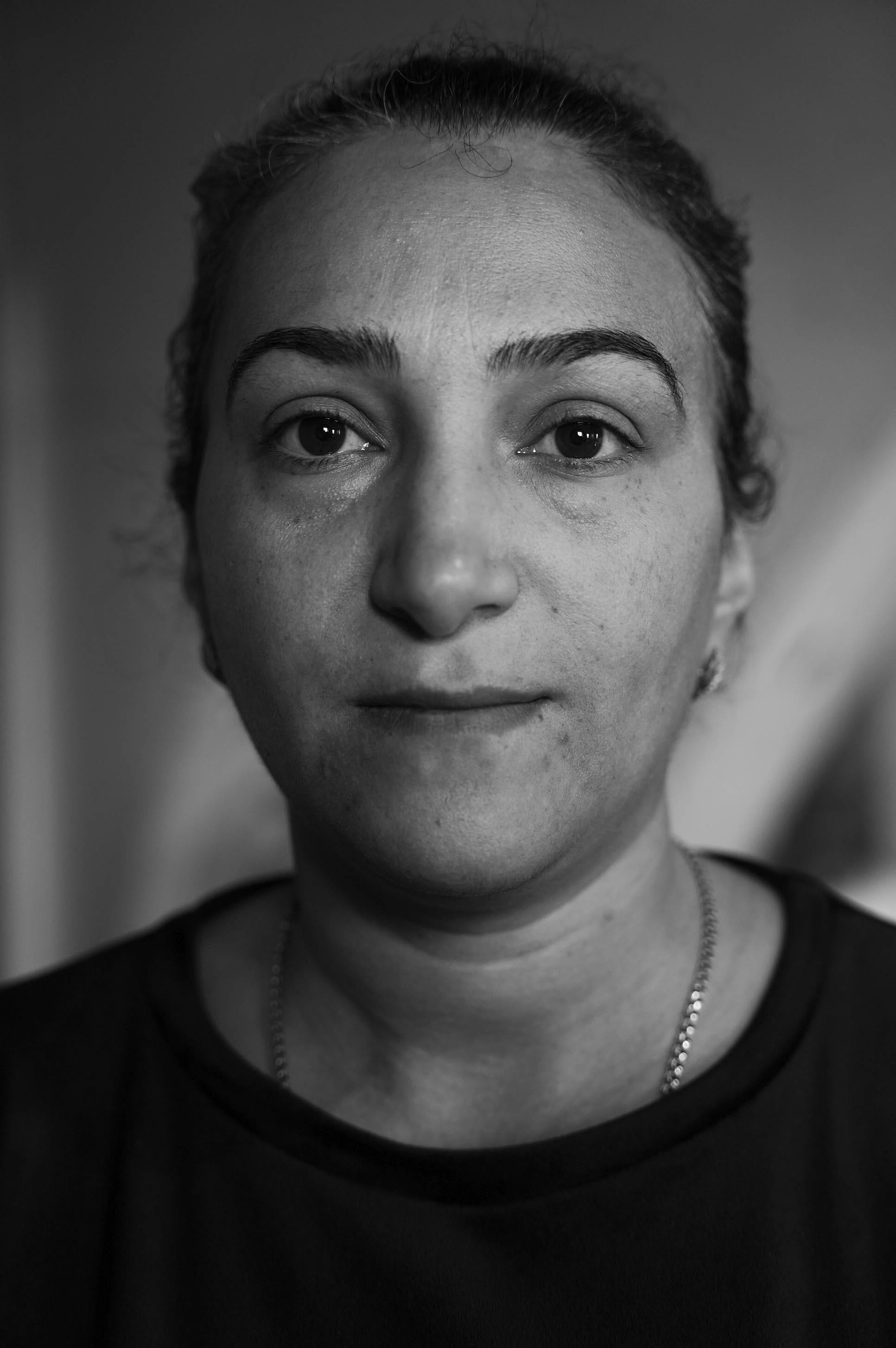
Such food items, once commonplace, were now preciously rare as the Azerbaijani-imposed blockade entered its 10th month. “With time, it became more and more difficult,” Naira said. “The lack of bread, the lack of sweets for the children was especially painful. The kids would cry for sweets, and you couldn’t do anything about that.” At the high school where Naira taught Armenian literature, “you could watch the kids get thinner and thinner.”
Medication was scarce, too. Initially, those in need of drugs for chronic conditions such as her father’s low blood pressure had merely to endure long lines. But after a while, imported stocks dried up, and pharmaceutical products simply became unavailable. Naira recalled, “We were forced to go back to the traditional cures: ‘This plant is good for diabetes, that one for high blood pressure.’”
A far more severe humanitarian crisis would likely have unfolded were it not for the Armenian community’s resourcefulness and solidarity. Case in point: On that sunny, mild Tuesday, Naira in between her work hours stopped by the home of a friend who had seen her Facebook message and offered her last can of sweet milk, figuring that the blockade was sure to be lifted by December when her own daughter’s birthday would roll around.
When Naira went to the bank where the happy recipient of the sweet milk worked, she received a curious bit of news in addition to gratitude. “She told me that her bank had told employees to be extra-careful that day, because there had been ‘activity’ in the [military] positions.” It wasn’t clear what Naira was supposed to do with this information, but to be safe, she pulled her 8-year-old son, Eduard, from his school and raced home; it was early afternoon.
“When I got home with this news,” Naira said, “whatever I was doing—cleaning, cooking—I was doing it distractedly. I had this feeling.” But her relatives were skeptical. “Relax!,” her father said. “Who would announce beforehand that they’re going to invade?” Minutes afterward the blast of an exploding shell settled his question. The invasion had begun. Naira and her family raced to the municipal bomb shelter.
TWENTY-FIVE MILES to the west, in Stepanakert, the seat of the ill-fated Republic of Artsakh and the territory’s biggest city, Alisa Minasyan and her husband, Samuel, were churning milk into butter when the distant shelling began at about 1 p.m.
Though they lived in an apartment in the city, the family also owned a small farm in Khnapat village, about 12 miles north of the city, which meant that the blockade period was less daunting for them than it had been for other urban-dwellers. “We started preparing for long-term survival,” she said. “But it was easier if you were working with a piece of land. We could grow potatoes. Potatoes grow on their own basically.” Access to the countryside also brought milk and other dairy products, allowing Alisa to make homemade sweets and butter for her kids.
Not long after the shells began to fall that day, Samuel, who served in the republic’s military, was called up to the “positions.” Alisa, a 48-year-old woman with a wide face and striking gray eyes, had lost her father and brother in earlier stages of the Nagorno-Karabakh conflict. And as Samuel bid her farewell, she trembled to think she might lose him, as well. But she buried that evil thought. For now, she had more immediate headaches to deal with.
Her 15-year-old son, Armen, was studying at a premedical college about two miles away, while her daughter, Elina, 14, was at the local high school. A neighbor who also studied at the premed college picked up her son. Elina’s school wouldn’t release her, but Elina skipped the day’s last class and made her way home. “And just as she came in, I was reading a bulletin from the Artsakh informational headquarters: ‘Everything is under control. Dear parents, don’t panic. Don’t take your kids out of school.’ As soon as I finished reading it, the electricity went out, and the shelling became more intense.”
Their apartment was located near a power station that the Azerbaijanis were apparently determined to take out, so the shockwaves that followed each boom felt especially powerful, shaking windows and rippling through their innards. Alisa and her kids decamped for a closeby bomb shelter, where they huddled with dozens of other families in the dust and dark.
As dusk fell, Samuel called from the front and asked to speak with Armen. Father instructed son to protect his mother and sister, and to check to make sure the other families in the basement were all right. Then the call was cut off. Glued to the blue glow of her smartphone, Alisa didn’t sleep that night as she waited for more calls or text messages from her husband; none would come.
ELSEWHERE IN STEPANAKERT, Yana Daftyan, aged 41, spent Tuesday morning volunteering to hand out food rations at the republic’s ministry of social affairs. “The way we were situated in the building,” she recalled, “we could see the hills, and we could see the shelling clearly. We saw the explosions starting at 1 p.m.”
A violinist by training, the slender, elegant mother of two had taught at a musical college in Shushi before the Armenians lost the city in 2020, when Azerbaijan seized the districts that ringed the republic to the south. On the way to teaching a class one day, Yana found herself enrapt by the melodies that wafted from a nearby studio. They belonged to “We and Our Mountains,” a song-and-dance troupe that staged the traditional music of Artsakh. Yana decided to join the troupe as a singer.
Against all odds, “We and Our Mountains” had continued to practice and perform through the blockade. “It was like life had stopped,” she recalled. “But we were stubborn. There were singers and dancers who were coming on foot from the nearby villages now that there was no transport and no petrol.” And even under those conditions they took part in a national arts festival held in Armenia—via the internet—“just to make them understand that we are here. We’re alive.”
But could they stay there even as the shelling drew closer? “I called my children,” Yana said. “One was studying, the other was working. I stayed in the ministry’s storage facility for a couple of hours, and then in the early evening, my son joined me at home, and we made it to the basement of the building across from us. But my daughter wasn’t with us, because she was working.” Adding to Yana’s anxiety, “there were so many people in there I could hardly breathe.” Finally at about 8 p.m., her daughter made her way on foot through the shelling to join the family in the basement.
LIKE NAIRA, SHOGHIK Mirzoyan spent the morning of the invasion searching for a rare product: namely, a pair of winter boots for her mother. “I was walking from shop to shop in Stepanakert and not having any luck,” she recalled. “And when there were shellings, I didn’t even pay attention. There was always something blowing up somewhere.”
But then she realized that others in the streets were in a panic. A few told her that they were hurrying to pick up their kids from school, and Shoghik resolved to do the same with her three kids: son Tigran, 13; daughter Irina, 11; and baby Sergei, 3. Shoghik first grabbed Sergei from kindergarten. Tigran, meanwhile, called to inform her that he was already home. “But I had no news of my daughter, and by five in the evening when we went to the basement, I still had no news.” In a panic, Shoghik called Irina’s teachers, who told her that the girl had been evacuated to the basement of the school.
News of her husband, Eric, was harder to come by. A captain who served as a communications officer with the republic’s armed forces, Eric was almost certainly at or near the front. Uncertain of his status, Shoghik and her kids prepared for a long stay in the basement shelter, which belonged to a neighbor across the street. “His was the only house with a basement in the area, and he could host the other families. It’s better that way. If you have your own private basement with the kids, alone, you go crazy.”
RAISA AGHABEKYAN LIKEWISE had to deal with multiple kids spread across different locations in Stepanakert as the invasion began. She was at her job teaching indoor agriculture at a technical college when rumors circulated that the Azerbaijanis had attacked some of the surrounding villages and might soon roll into the city. “My middle son was sick at home,” she recalled, “my younger was in kindergarten, and the older was in school.”
She texted her eldest to pick up the kindergartener and head home as the artillery blasts confirmed the morning’s rumors. “I was afraid for my [older] son,” she said, “We could already feel the aftershocks of the shells. It was total panic.”
Thirty-five going on 50, her large eyes and classically arched brows framed by graying hair, Raisa was born in Martuni but settled in Shushi after the First Karabakh War. That’s when the Armenians had won independence in historical Artsakh and captured some of its neighboring districts, expelling ethnic Azerbaijanis in the pattern of pogroms and counter-pogroms and population transfers that has shaped this region since the dawn of modern nationalism in the early 20th century.
By 2020, however, the balance of forces had tipped in favor of Azerbaijan—including in the realm of Western p.r., where the kleptocratic Baku regime had managed to present itself as a strategic asset against Iran and a potential energy source for Europe. Armed with powerful Israeli drones, the Azerbaijanis inflicted devastating losses on the republic’s defenders. Footage proliferated online of Armenians singing goodbye hymns to churches where their ancestors had worshiped going back centuries; the Trump administration was indifferent.
On the last day of the war, just before a ceasefire had been reached, Raisa’s younger brother, Sasun, was shot in the knee. With his comrades unable to evacuate him, Sasun had bled out his life at the front; he was 30. Raisa’s family, and the college where she worked, had been relocated to Stepanakert along with many others from Shushi. Now, as chaos swirled around her in Stepanakert, Raisa wondered if she would have to escape—again. No, she recalled thinking to herself. Even if everybody else leaves, my younger brother’s grave is here. I’m not leaving.
“I didn’t have a phone connection to check if my kids reached home or not,” she said. “Then I finally received a message from my older son saying, ‘We’re already there.’” Her heart dropped when she finally got home and found her kids missing. “Luckily, it turned out the neighbors had realized that my kids were in there, and they had taken them to a safer place in the basement.” Her husband, Ashot, meanwhile, had been called to the front and was incommunicado. “A lot of women were getting news about their husbands in the front, but I didn’t have news for two days.”
Wednesday, Sept. 20, 2023. “Samuel was a very caring husband and father, and even when the connection was bad, he would always find some other means to get in touch with us and ask about the kids. So when I hadn’t heard from him, I already knew there was something wrong.” Alisa Minasyan and her kids had spent the night in the shelter trying not to voice the unsayable. The morning brought news of a ceasefire, orders to go home, and the sight of the first men returning from the front with instructions to burn their uniforms and other military paraphernalia.
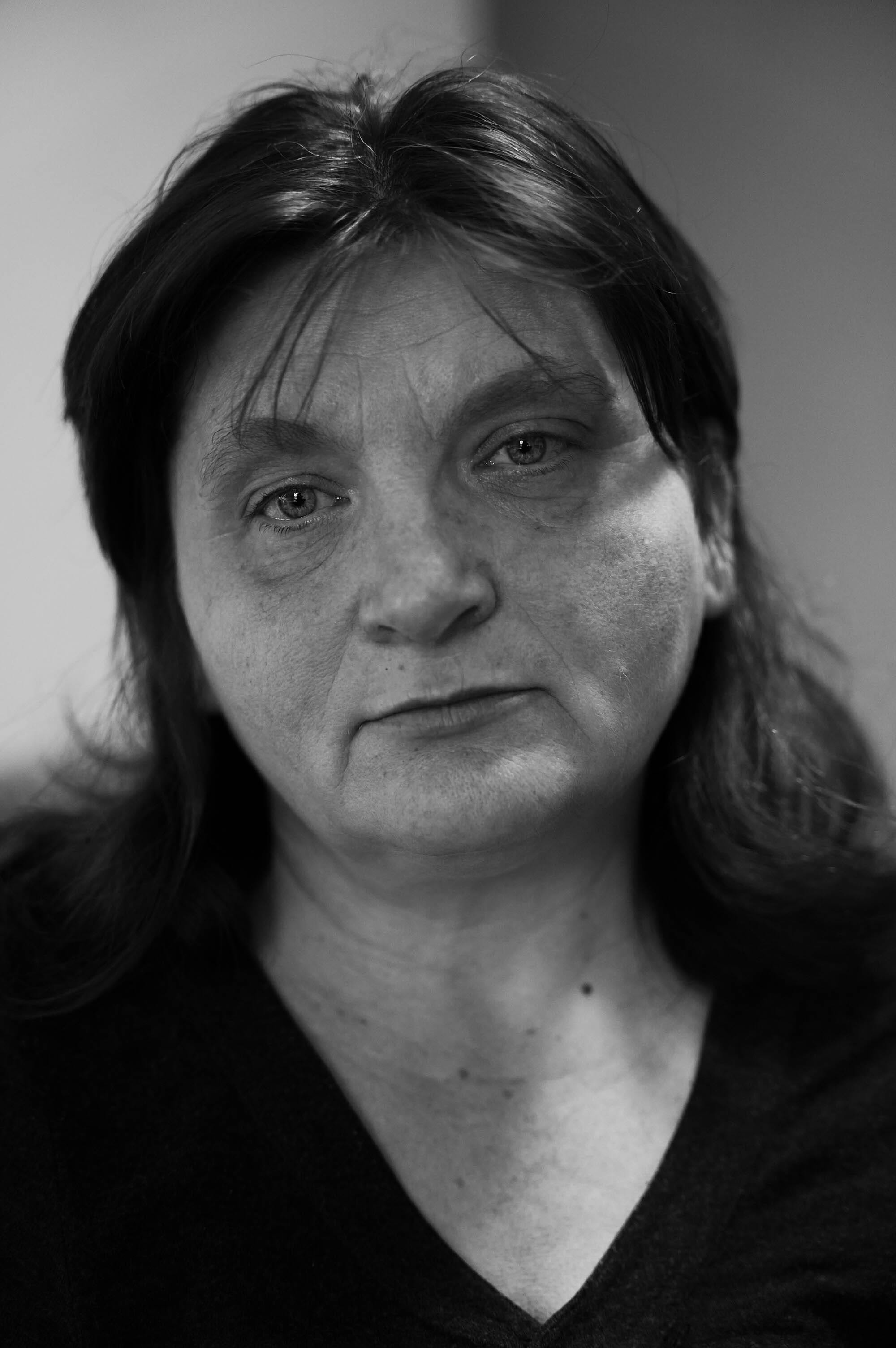
“I watched the other men burn their clothes and photos,” Alisa recalled, “and he wasn’t among them.” In the event, “it was time to start thinking about protecting ourselves.” Amid the confusion, Armen rolled by in the family car—he wasn’t supposed to drive, but Samuel had been teaching him how since he was 11—with vague thoughts of going somewhere. Around the same time, Alisa’s brother-in-law stopped by. “And he lied to us,” she said. “He didn’t tell us that my husband is dead, though he’d heard the news. He said, ‘I’ll take you somewhere safe, I’ll drive to the airport. And then I’ll go to take care of him, because he’s wounded.’
“On the way to the airport, we drove by two hospitals, and my son said to my brother-in-law, ‘When you get to where Father is, if you’re next to him, call me, because I just want to hear his voice.’”
The airport was overrun with anxious people. Amid the pandaemonium, Alisa spotted a comrade of her husband’s from the military. “He was looking for his family and couldn’t find them, because it was so hectic. I asked him where my husband was. He looked at me and said, ‘He’s not with us anymore. He’s in the morgue.’” During the initial invasion, the entrance to Samuel’s base had come under attack. Samuel had pushed aside a woman in the line of fire and taken the hit. It was two days short of his 43rd birthday. (All told, around 200 service members of the Republic of Artsakh were killed and double that figure wounded in the course of the invasion.)
In the evening, Russian peacekeepers, who controlled the airport, announced that any family still in possession of its residence should return to it. Alisa took in her in-laws, who had also arrived at the airport from their village, Khnapat. For now, there was no room for grief—only her new duties as a widow and single mother.
RAISA AGHABEKYAN WONDERED if she should evacuate to the airport. “I had a friend working in the Artsakh parliament,” she recalled. “I called her for advice and asked, ‘What do I do?’ She said, ‘I don’t know what you should do. If you feel unsafe, you can go to the airport.’” Raisa resolved to stay, telling her friend, “My husband is at the front, and I can’t reach him. This is the only place I have. We aren’t going anywhere.”
“But you know what the Azeri offer is, right?” her politically connected friend shot back. “The women and the kids can go with the Russian convoy, but the men had to stay.”
“They can go hang it,” Raisa thought to herself as she hung up the line. When she stepped out into the street, she realized that several other wives had reached the same conclusion. There was fear and uncertainty, but the duties of the moment kept them at bay. “I had frozen lavash dough in the freezer, and one of the local bakers had managed to bring a kilogram of flour. So we started baking lavash bread in a small oven to feed the families.”
A RUSSIAN OFFICER stopped by the basement where Yana Daftyan and other families were sheltering and offered to transport them halfway to the Stepanakert airport. They walked the rest of the distance, for about two hours. Shortly after they arrived, however, they were told that the ceasefire would hold, and that they should return home. “So again we walked for several hours,” Yana recalled. “When we got home, I learned that my brother, who was at the front, had been surrounded and captured. “There was no food, no water, and I was frozen with fear for my brother and my own kids. It was an endless horror.”
NEWS OF THE ceasefire prompted Shoghik Mirzoyan and her children to leave the shelter and return home. “We didn’t have any firewood ourselves, because our heating system was electric,” she said. “But we put a stove in the yard, and all the neighbors brought firewood. The kids already sensed that these may be their last few days in Artsakh, so they started playing volleyball and other games.”
It soon dawned on Tigran, her 13-year-old son, that they would have to leave the family dog behind, and the thought ruined his appetite for play. “He was hugging the dog and crying,” Shoghik said.
WITH THE ELECTRICITY unstable, the comforts of a stove were also what awaited Naira Danielyan and her family as they emerged from the shelter amid the ceasefire. “We boiled water and washed off the dust of the basement.” But what were they to eat? Naira’s husband, a car mechanic, had been left more or less unemployed during the blockade: The fuel shortage discouraged driving, and fewer cars on the road meant even fewer cars to repair; cash had been short.
Then Naira remembered the meat: “We’d had it in the freezer for months, but we’d decided to keep that for a real emergency. We treated the frozen meat like a holy object. Every day of the blockade felt like that ‘real emergency,’ so we would be tempted to eat it. But then we’d tell ourselves, ‘OK, today we managed to collect some tomatoes, some eggplants, or whatever, so we’re fine.’ And so we held off eating the meat. ‘There must be a worse day yet to come,’ we kept telling ourselves.”
Sept. 20, 2023, was that worst of all days, and the Danielyans finally savored their holy meat. Then Naira returned to the shelter with Eduard, their son. The boy was adamant that the shelling could start anew, raining deadly fire upon them at any moment.
Thursday, Sept. 21, 2023. Jemma Marabyan suffered a different kind of ordeal than that faced by the other women. If you followed events in Karabakh during the September 2023 invasion on social media, you may have seen smartphone footage, published by the Azerbaijanis, showcasing their troops kindly ministering to an old woman with short hair lying flat on a stretcher. They offer her water and later evacuate her and a couple of other ailing women to a clinic, where nurses take their blood pressure and serve them fruits.
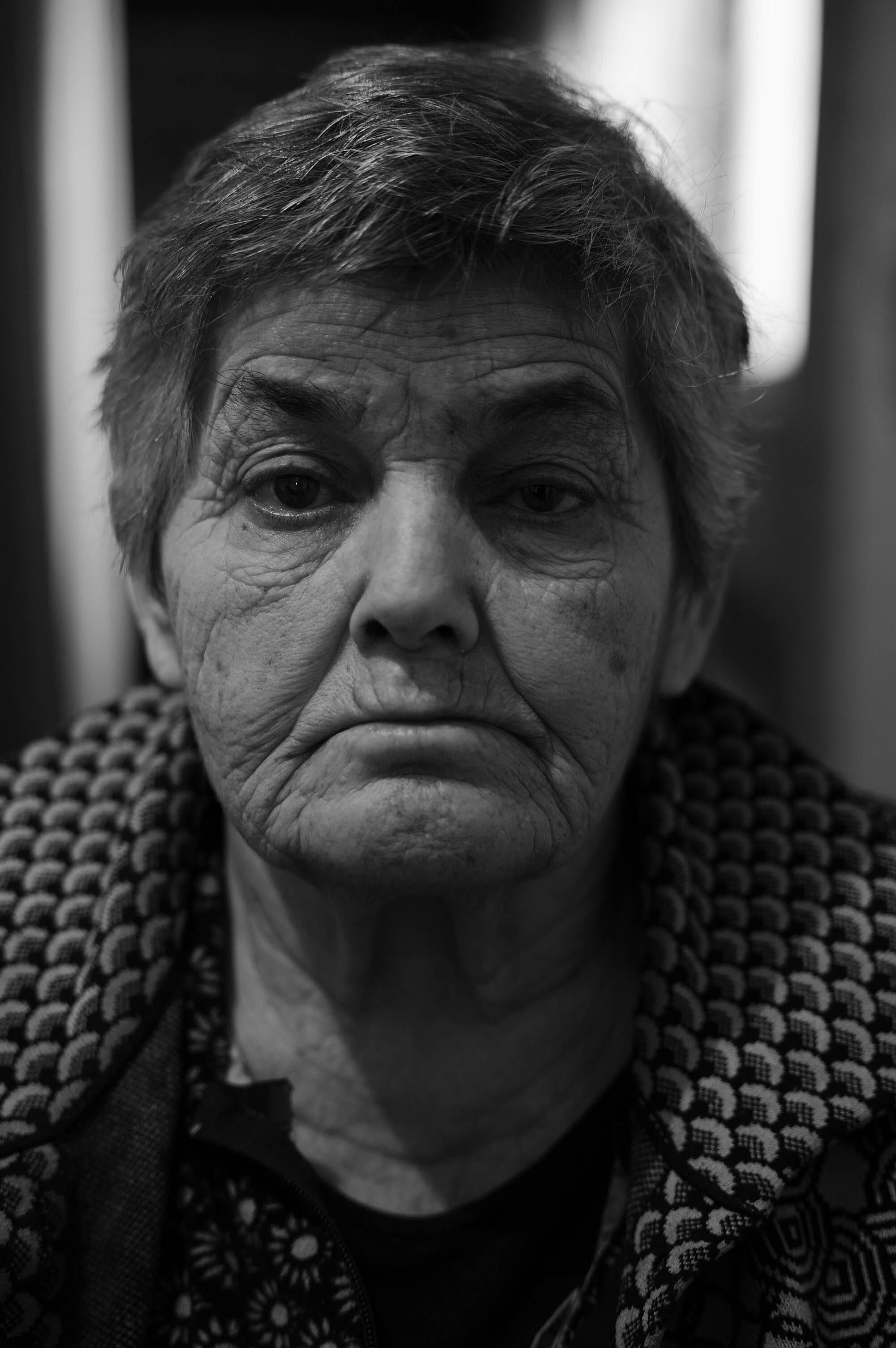
What actually transpired, once the cameras stopped filming, was rather different.
The 72-year-old mother of two and grandmother of seven lived in a hamlet of about 100 souls called Sarnaghbyur in the eastern portion of Karabakh, close to the border with Azerbaijan. On Tuesday, when the invasion began, Sarnaghbyur sustained especially heavy fire, with many killed and maimed, including Jemma’s adult son, who was wounded in the leg by shrapnel.
By Thursday, Azerbaijani forces had taken control of Sarnaghbyur and were surveying the area for signs of life when they came upon Jemma, her son, and two neighbors sheltering under a tree. The local mayor had guided them there for protection, such as it was, while he drove other survivors, including members of Jemma’s family, to safer points deeper inside Karabakh.
“I was almost in a coma from my high blood pressure by that point,” Jemma said. “What the Azerbaijanis did was make videos of me, showing them helping me. But after these two minutes of helping me, afterward they did nothing for me.” The four captives were transported across the border to the city of Agdam, where, after a little more publicity filmmaking, the orderlies used scissors to tear off Jemma’s clothes, leaving her naked and humiliated before dressing her in a flimsy gown and abandoning her to a bed for the next several days.
“All they gave us was tea, tea, tea,” she recalled. “There was no bread. The hospital room was swarming with flies, but one time when I covered my face with a blanket, suddenly one of the orderlies barged in and started slapping me over and over until the doctor heard the commotion and came in, and that somehow put an end to the beating.” Unbeknownst to Jemma at the time, but later confirmed by the other evacuees from Sarnaghbyur, the Azerbaijani authorities were meting out far more brutal beatings to her son that she claimed had left him unable to use one arm.
As she lay in bed, hungry and smarting from the unaccountable punishment she had received, Jemma had no clue as to his whereabouts, or what sort of fate awaited her.
BACK IN STEPANAKERT, Alisa Minasyan dispatched her son, Armen, to a governmental building to charge her phone, since there was no stable electricity at home. But when she heard that Azerbaijani troops were descending en masse on Krkjan, a village just two and a half miles southeast of the city, she quickly called him back home.
NAIRA’S HUSBAND REFUSED to join her and Eduard in the shelter. On Thursday, “he called me and said, ‘What are you waiting for? When are you coming home? OK, we’ve had some losses, there is a war, this is another struggle in our lives that we have to pass through. But there is zero chance that we will ever leave Artsakh.’” Naira promised to return soon—but only after she was able to recharge her phone.
“When I got home, my husband was planting coriander in the garden,” she recalled. “When I look back now, I don’t know if I was crazy or naïve or patriotic. But even though we could hear the sound of the tanks and other heavy military equipment that were being turned over to the Azeris as part of the ceasefire, I felt at peace. I went to our bedroom and for the first time in a long while, I slept deeply. ‘This is my home,’ I told myself. My brain knew that anything could happen at any time. But I was in my home.”
Saturday, Sept. 23, 2023. Three days into the ceasefire, Raisa Aghabekyan had been reunited with her husband, who returned safely from the front and burned his uniform and other military gear on instructions from high command. That morning, she called her politically connected friend in the republic’s legislature once more, desperate for information.
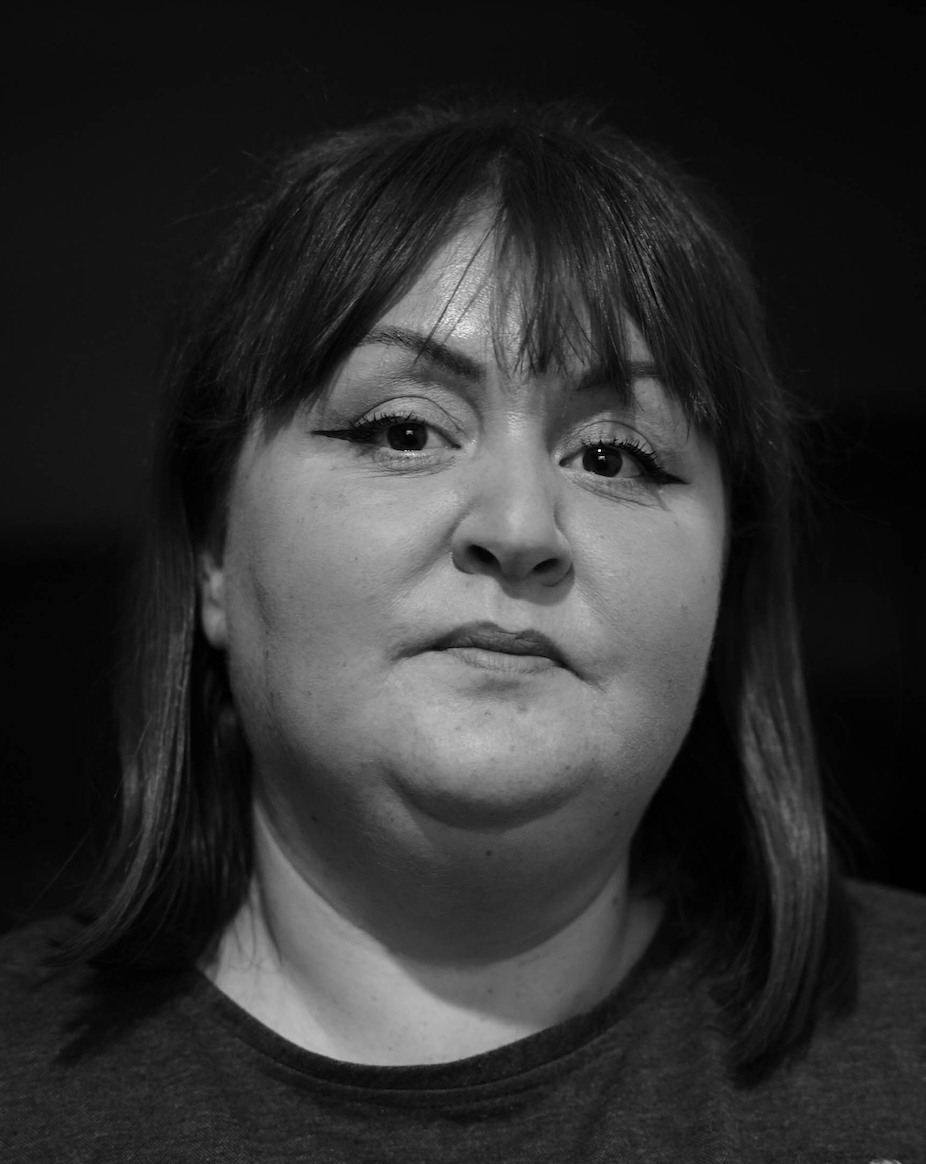
Her friend said, “This is the deal: Give up Artsakh for your lives. If you want to survive, you need to leave. This is the offer.” Reality was chipping away at her determination to stay. “We were at a point where we didn’t have a choice,” Raisa recalled. “We had already survived the hunger, the lack of electricity…. There was shelling everywhere around, the kids were screaming. By that point, we didn’t have a choice, and we didn’t have time to think.” Still, Raisa wasn’t ready to leave Sasun’s grave.
A HARSH REALITY—the lack of food, electricity, and other supplies—intruded upon Naira Danielyan’s brief wartime idyll. It was time to leave for the one place the Karabakhi Armenians could find safety: the Republic of Armenia, connected to Karabakh via a winding mountain road called the Lachin Corridor. Under earlier ceasefire agreements, the corridor was supposed to be kept open and under the control of a small contingent of Russian peacekeepers. But when the Azerbaijanis had launched their blockade, the Kremlin didn’t intervene.
That September, however, traffic between Karabakh and Armenia proper would briefly surge to unprecedented levels—to facilitate departure of the entire Armenian population at Azerbaijan’s behest. So it was that a roadway meant to serve as the community’s lifeline brought about the Karabakhi Armenians’ near-total ethnic cleansing.
By Saturday, the Karabakhi authorities had begun to arrange transportation by bus for the ailing and elderly and those who didn’t own private vehicles. The Minasyans, who had a car, would have to find their own way. But how was Naira supposed to leave her home? And what was she going to take with her?
“The first thing that came to my mind was to grab our documents,” she recalled. “Plus some money. And clothes for Eduard, because I remembered how difficult it was to obtain clothes during the blockade, and I was thinking that at least I wouldn’t have to spend money again to buy clothes once we crossed to the other side.”
Naira’s parents lived in the house next door, where Naira was born and raised. “My mother had some flour,” she said, “and she’d started the fermentation process. But then there were rumors that unless you left with the Russian convoy, you would be unsafe. So I urged my parents to leave with my sister’s family. They left, and I took over the baking. There seemed to be plenty of time, and so I thought, OK, I will say goodbye to my childhood home.”
“The farewell to my own house wasn’t nearly as emotionally heavy as my farewell to my childhood home. I was overwhelmed especially because my mother had thoroughly cleaned her house, as if she had just gone over to have a cup of tea with the neighbor. Even the cloth she’d used, she’d washed and dried and put away neatly. Then I walked around, and I saw my father’s eau de cologne in their bedroom, plus his blood pressure monitor. Looking at this stuff, I got angry with my mother. Why didn’t she take the cologne? And what if he has a blood pressure attack? My brain wanted to take the smell of my father with me, because I didn’t know what would happen next, and I wanted to have that smell with me.”
ALISA MINASYAN VISITED Samuel’s grave on Saturday—the day after she buried him—in accordance with Armenian tradition. When his body was first brought home from the morgue, she remembered his burial instructions: “Listen, if something happens to me, take my body to my village. Don’t even think about burying me here in Stepanakert.” He didn’t want his burial site to be lost to Azerbaijani vandalism—what the couple suspected had become of the graves of Alisa’s brother and father—and figured it would be safer in Khnapat than in the city.
“So we buried him in Khnapat,” Alisa said. “The Azerbaijani troops were observing the whole affair from a hilltop while we held the funeral.”
Sunday, Sept. 24, 2023. Shoghik Mirzoyan had been in the dark about Eric’s whereabouts ever since he was called up on the first day of the invasion. Said Shoghik, “Without communication with Eric, not knowing what had happened to him, I was like a half-person.” On Sunday, however, he finally showed up, “and I felt a wave of relief coming over me like I had never felt before.” By then Shoghik’s mother and numerous other relatives had joined her, chickens and flour in tow, and Eric’s arrival from the front lent the whole house a curiously festive atmosphere, all things considered.
Eric, however, couldn’t stay long. The army communications department, where he served, was among the last units to wrap up its work. Having endured the invasion without becoming a widow, Shoghik dreaded to bid him farewell once more. The upside was that Eric’s commanding officer started handing out fuel rations to his charges from the military’s own reserves: five liters for each man at first, and when there was some left over, he rationed out still more. Eric would hand over his rations to his sister-in-law, whose brother had died, and would have to scrounge more fuel when it came time to depart.
Partly to pass the time and partly just because, “I started cleaning the house,” Shoghik recalled. “My father-in-law always liked an orderly house, and so we started brooming, washing the windows, putting things away, so it was all neat.”
ON SUNDAY, ALISA Minasyan saw that buses had begun to depart for Armenia. “But we were told that families with private cars should wait to leave the following day”—meaning, on Monday. Meanwhile, the newly widowed mother of two spent the day hurriedly packing. “The only thing that came to my mind was our documents and some money I had,” she said. “Now that I have a calmer brain, I keep thinking, ‘I could have taken this, I wish I had taken that.’”
THE DANIELYAN FAMILY departed Martuni that Sunday morning. Said Naira, “Now I look back, and I discuss it with my husband, and I say, ‘Who told us to leave?’ It wasn’t a decision we made. It was decided for us.”
Sept. 25, 2023. By Monday morning, Raisa Aghabekyan had reconciled herself to the reality of exile. “But there was no petrol,” she said. “And then we heard that there was petrol at this underground fuel depot in Berkadzor,” about four miles outside Stepanakert. She headed for the depot in the evening, as did her elder brother, Grigory. A huge group, mostly men, had lined up for the fuel depot. It seemed hopeless, but then some friends of her younger brother noticed Raisa—“and because I was a woman, they didn’t let me wait in line, but pushed me forward, and I was able to get two full cans of petrol in a matter of minutes.”
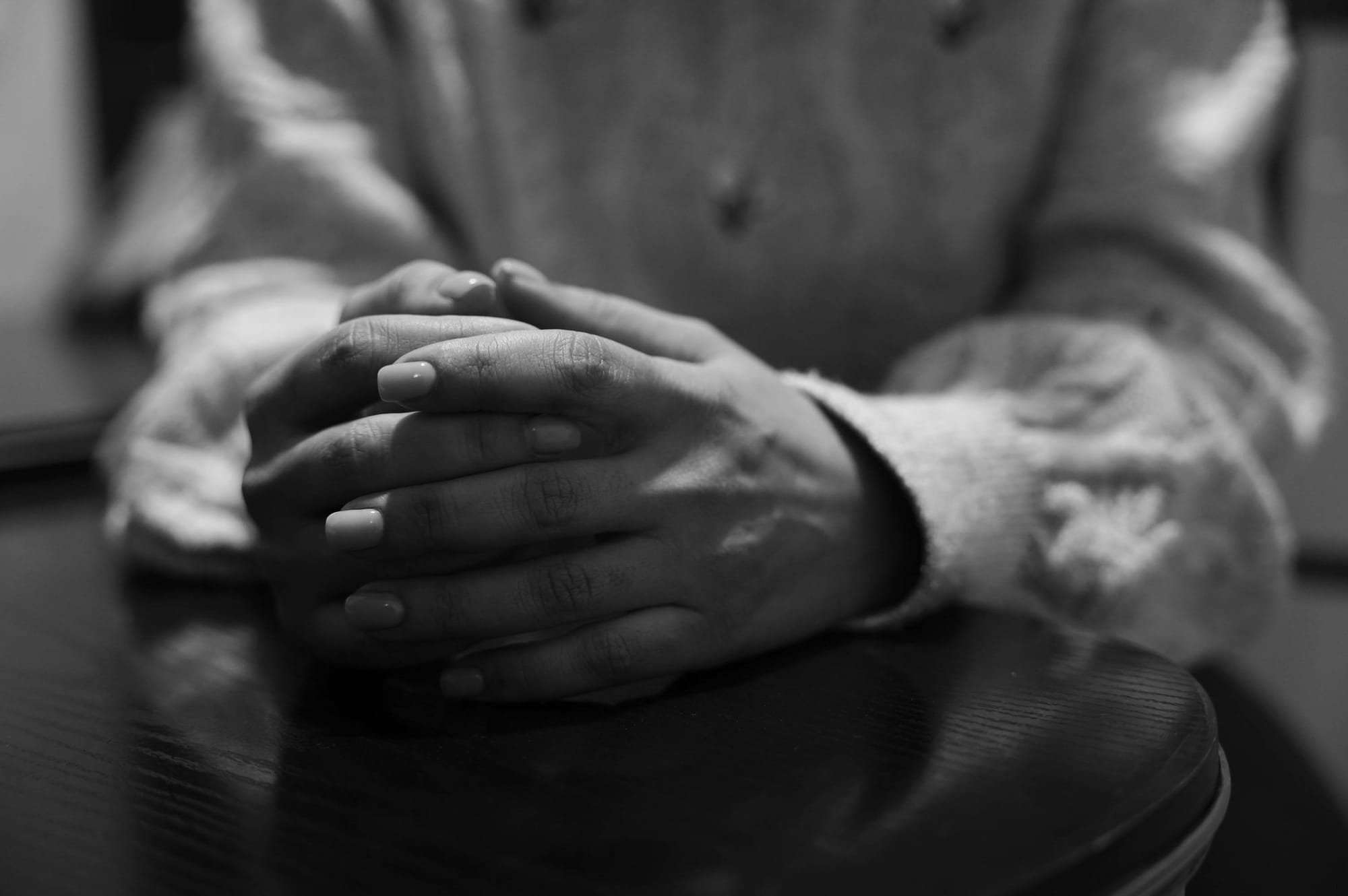
Stepping away from the crowd triumphantly, Raisa spotted Grigory waiting in line for fuel for his family. “Then I called him and said, half-jokingly, ‘Well, I was a woman, so they let me jump the line, but I doubt they’d do the same for you.’ I could see him smile at that. And that was the last time I ever spoke to him.” As she turned away from the line, the depot exploded into a huge ball of fire and light that for an instant lit up the night sky and the surrounding settlement. Raisa felt a blast of heat on her neck, and the shockwave hurled her forward. But she was OK.
“There was a second explosion,” she recalled. “I was screaming, calling my brother, hoping he could follow my voice out of the firestorm.”
The surviving bystanders, Raisa included, began splashing muddy water from the ground at the burn victims who stumbled out of the fire. “The first few who could get away, we were tearing their clothes off and putting them into cars. They were vomiting blood.”
Eventually ambulances and emergency workers were able to approach the site. “From the peripheries they were able to rescue some people,” Raisa said. “But they weren’t able to get to the center, because the fire was like a tornado, just rolling around and swallowing everything. Grigory was in the center.”
The republic’s authorities blamed “violation of safety rules,” while many ordinary Armenians to this day blame a deliberate Azerbaijani attack. Even if the Baku regime didn’t directly cause the explosion, it remains responsible for having created conditions that forced hundreds of desperate people to crowd a fuel depot. The official fatality count eventually reached 218, with more than 100 wounded, most severely; 21 people remain missing.
“I was realizing the reality that my brother definitely is not alive,” Raisa recalled. “Of course, in that kind of situation, you want to hope otherwise. The desire to see him again was strong. But I needed to realize how serious the situation was.”
YANA DAFTYAN RECEIVED word Monday morning that her brother had been released from captivity. As soon as the happy news came, she and her parents decided to leave. “We bundled up what we could. I had three violins, and I left them behind. And even the national costumes of the dance group, I left those, too, bitterly, because there was no room. Of course, it was kind of a treasure for us. We wore those costumes with pride in presenting the culture of Artsakh. It pains me.”
The only sentimental object Yana took with her was a fistful of Artsakh’s soil.
“We left in three cars,” she said. “My uncle, brother, and cousin each drove one of the cars.” The same day, they reached the checkpoint at Hakari Bridge. The name of the bridge, which passes through the Lachin Corridor, had become a synonym for fear among the Armenians. Word was that the Azerbaijanis inspected every car, interrogating military-aged men whom they suspected of having served as combatants in the various Karabakh wars over the previous three decades. There was also, supposedly, a list of senior Armenian fighters whom the security forces had vowed to detain, to be interrogated and tried in Azerbaijan in proceedings where the defendants were almost certain to be denied due process.
As they approached the checkpoint, Yana imagined worst-case scenarios. “Until the last minute you keep thinking: Will they allow you to pass? But they just waved us through.”
ALISA AND HER children left Stepanakert on Monday morning, with her son, Armen, in the driver’s seat. “It’s a hell of a drive from Karabakh,” Alisa said. But Samuel had taught him well. Not just driving, but how to repair the Opel clunker should it break down. “It’s as if my husband knew he was bound to be separated from us for good, and so he trained my son to fill his shoes when the time came. The following day, the Minasyans safely reached Armenia, and by that evening they had arrived at the resort town of Dilijan, where they remain settled to this day.
THE DANIELYAN FAMILY also reached the Hakari Bridge on Monday. “We were very worried,” she recalled, “because people had had different experiences. Some had the car fully checked. Others had to step out of the car. And still others had to go through an X-ray.” Naira had managed to persuade her husband to throw away his set of souvenir knives—“a small thing can become a big thing,” she had warned him.
“But I must say honestly, the bridge passage was easy for us,” Naira said. “The soldiers greeted us with water and asked if there was a child in the car. When we answered, ‘Yes,’ they gave us some sweets. We only had eight liters of petrol left. The Azerbaijanis also offered fuel, but it was diesel, so we didn’t use it. I told my husband, ‘Forget their damned fuel. If we just cross into Armenia, we can make it from there. Our own people will push the car if necessary.’” A few days later, they reached Dilijan, where they would also make their new home.
JEMMA MARABYAN’S DAUGHTER and granddaughter eventually surmised that Jemma and her son had been captured by the Azerbaijani forces. They lodged a complaint with the Red Cross, which transported the mother and son out of Agdam and into Armenia proper via ambulance.
Sept. 28, 2023. Given Eric’s wind-down duties at the army communications department, the Mirzoyan family didn’t decamp for Armenia until the following Thursday, more than a week after the initial invasion. The Mirzoyans didn’t lock the doors to their house before they left. “We knew that when they enter the houses, the Azeris break the windows and trash everything and post the footage on TikTok. So we said, ‘Let it be open, so when they come in, and find it open and tidy, they won’t trash it.”
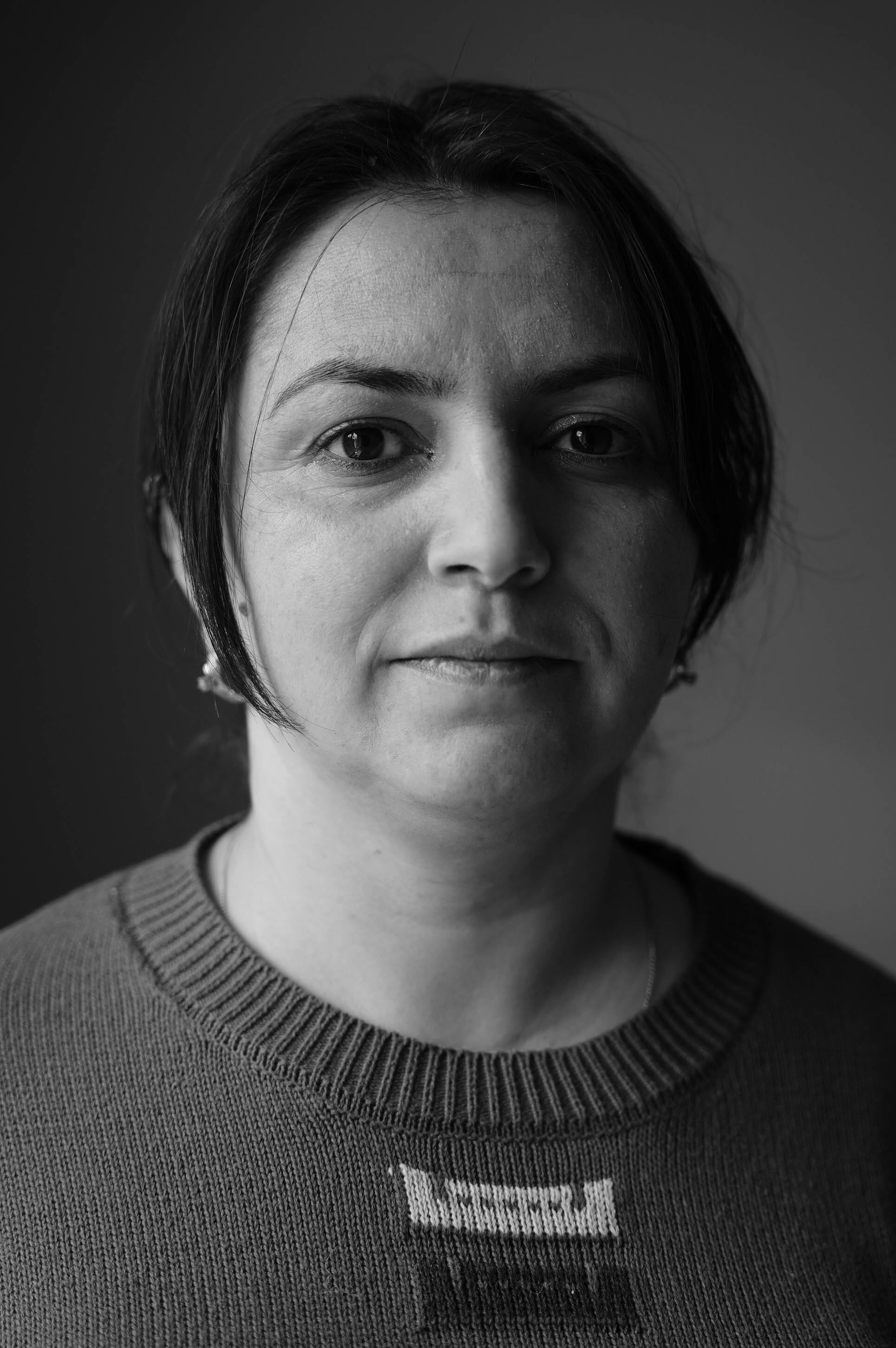
They left what food they had left for the dog, “so it could survive for as long as possible, and we removed its chain so it could roam and find food elsewhere, if possible.” Tigran was inconsolable.
On the road, Shoghik recalled, “my main concern was that my husband might be taken at the [Hakari] bridge. I don’t know what people in general imagine when they say ‘hell,’ or what they understand when they use this word. But I can tell you that what we went through on the bridge was hell.” Not just her husband, a communications officer in the republic’s army with the rank of captain, but her father was a potential target, as well. “My father served in the ’90s war. He was almost certainly on the list.”
“Our family and extended family left in three cars. When we got to the bridge checkpoint, the Azerbaijanis told the men to hand over the family’s passports and to step out of the vehicles. A soldier sat in the front seat of each car and used a phone flashlight to examine the faces of the women and children. He took a kind of pleasure in the power he had over us. My heart felt like it was beating inside my throat. But then they gave water to the kids, and said, ‘OK, safe travels.’ And at that moment, we knew we would never come back.”
Yet the passage brought scant cheer. “It’s not that you think you’re going to be OK when they let you go. You just realize that you’re lucky that you survived. From this perspective, you feel lucky. But we left so much behind. We left our memories, our childhoods, our land, our graves.”
RAISA AGHABEKYAN WAS now ready to leave, but what to do with her brother’s car? Something in the electronic system had gone haywire, and the key fob didn’t work. Eventually, her husband, Ashot, smashed the driver’s side window to grab Grigori’s personal effects; they abandoned the car.
“On the last day,” Raisa said, “I told the kids, ‘You can do anything you want in the house. So they started pillow fighting with abandon. And they pushed their bicycles down a hill, because they didn’t want the Azeris to get their hands on them. So the kids would make a mess.” But her mother, Angela, couldn’t abide leaving a messy house, “so the kids would make a mess, but still Mother would run after them and clean up.”
It was time to hit the road, but Angela, 68, refused to come along. She remained certain that Grigory was still alive, and someone had to stay back in case he returned home. “We will find Grigory,” the old woman kept saying. Eventually, the family managed to convince her to take one of the very last buses out of Artsakh. Among the few possessions she carried along was Sasun’s small gravestone.
Raisa and her immediate family left by car. She recalled: “The kids were stressed, saying, ‘They will catch us on the bridge.’ I tried to calm them down and distract them, telling them, ‘Look, there will be well-stocked shops where we’re going. We can buy you whatever candy you want. Make a list of what you want.’” That evening, they reached Goris, inside Armenia proper, and the following day, they arrived in Artashat before settling just outside Yerevan, the Armenian capital.
The spiritual heartland of the Armenian people—where their alphabet was developed, where the steeples of ancient churches and monasteries vouch for their indigeneity, and where they had retained sovereignty through long centuries, even as they lost it elsewhere—is now all but devoid of Armenians. The sturdy Karabakhi Armenians are exiled, likely never to return to their ancestral land.
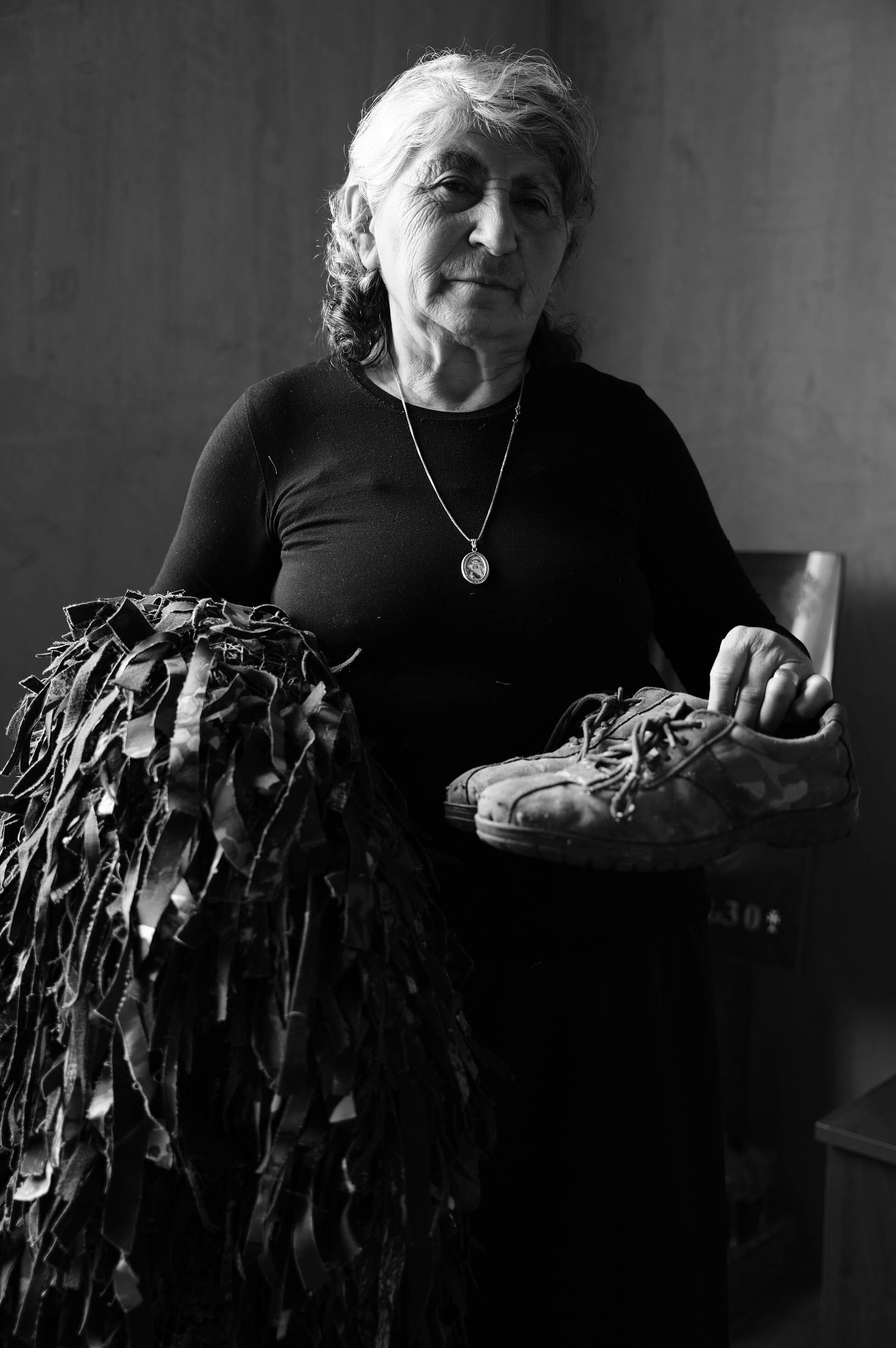
“Artsakh” is now a collective memory shared by the 100,000 or so Armenians forced out of their homes by a starvation blockade followed by an invasion. The material condition of the exiles is, for the most part, poor, though those belonging to the professional classes, like the Danielyans, have fared better. By contrast, Jemma Marabyan, the captive grandmother abused for p.r. purposes by the Azerbaijani military, and her family barely eke out a living in a ramshackle house in a village on the outskirts of Yerevan.
With their finances, social context, and sense of purpose disrupted, many feel as if they are inhabiting an in-between stage of life with no end in sight. The children have an especially hard time, since they had been accustomed to Karabakh’s dense networks of kinship and friendship. When he watches videos of parachutes on YouTube, 3-year-old Sergei Mirzoyan says, “We will take one of these back to Stepanakert.”
Alisa Minasyan isn’t sure if she wants to return. “I have traumas and losses associated with Artsakh,” she said. “On the other hand, I want to go back—because we have the graves there.” For Raisa Aghabekyan, it’s the compounded losses—two brothers and two houses, one in Shushi and the other in Stepanakert—that sting the most: “We had a nice house in Shushi. We had renovated it, furnished it brand-new. And then we started a new life in Stepanakert. We renovated that house and furnished it. Then we lost that one, too. We are in a situation where the blood doesn’t dry. It never ends.”
Yana Daftyan, however, is back to singing with the troupe “We and Our Mountains,” now reunited in Yerevan. They meet for regular recitals at a martial-arts studio and are preparing to re-enter the festival scene, notwithstanding scant funding and their disrupted lives.
“We didn’t think the group could survive, that we could do it again. But everybody comes here. We are all reunited here. As long as we keep at it, we will preserve the culture and the dialect and everything connected with Artsakh. It gives us a kind of power.”
But, she adds, “every night, I dream of Artsakh.”
